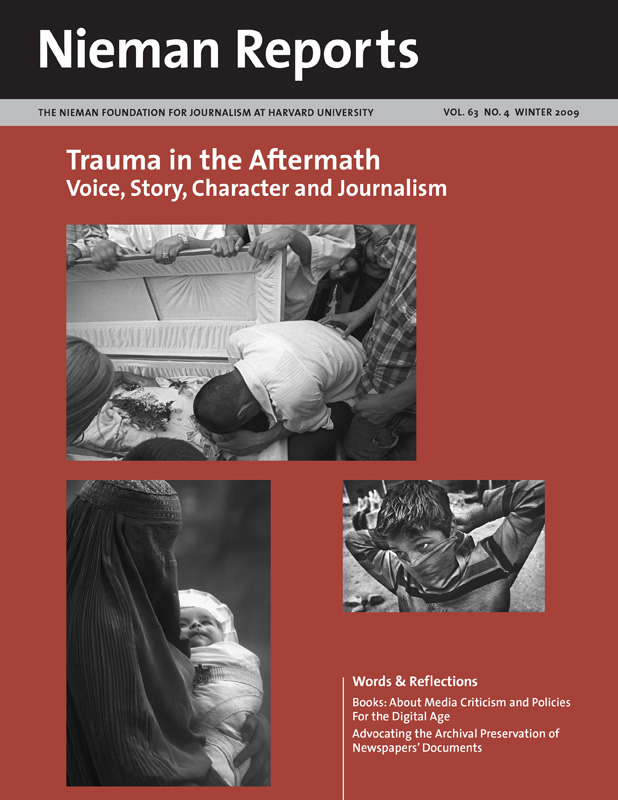Julia Reynolds offers approaches to handling the stress that can be part of this demanding crime beat.
RELATED ARTICLE
"When a Crime Is Just the Beginning of the Story"Learn to tell our stories. I don’t mean on the front page of the paper, but to someone, somehow. Talk to a fellow reporter or someone who will hear what you’ve been through because so often you’re isolated. You covered that murder by yourself; finding someone else to share it with is a big deal. It’s really important. The newsroom totally discourages this; if you come in crying, your boss is going to take you off the story and say, “You’re getting too close. You’re getting too …” Well, maybe you’re too close, but maybe you’re the right person to do it.
Check out dartcenter.org for the Dart Center for Journalism and Trauma. There’s a lot of useful information there to help explain to others in the newsroom why all of this is important.
Get a mini-life: Do this, even if you’re passionate about journalism. When I got the Nieman Fellowship, I was stunned to realize there is all this other stuff in the world that is also important. It’s just good to remember that.
There’s also this other minor but not insignificant trauma going on in newsrooms about something we care about very much, which is the American newspaper that is imploding. We feel bad for ourselves, but one thing I realized is that our boss is also worrying more about the budget and layoffs. So people on whom we used to lean as mentors are no longer there for us. I go to my boss now and he’s like, “Don’t talk to me.” So we have to get out of our bubble and connect with each other.
RELATED ARTICLE
"When a Crime Is Just the Beginning of the Story"Learn to tell our stories. I don’t mean on the front page of the paper, but to someone, somehow. Talk to a fellow reporter or someone who will hear what you’ve been through because so often you’re isolated. You covered that murder by yourself; finding someone else to share it with is a big deal. It’s really important. The newsroom totally discourages this; if you come in crying, your boss is going to take you off the story and say, “You’re getting too close. You’re getting too …” Well, maybe you’re too close, but maybe you’re the right person to do it.
Check out dartcenter.org for the Dart Center for Journalism and Trauma. There’s a lot of useful information there to help explain to others in the newsroom why all of this is important.
Get a mini-life: Do this, even if you’re passionate about journalism. When I got the Nieman Fellowship, I was stunned to realize there is all this other stuff in the world that is also important. It’s just good to remember that.
There’s also this other minor but not insignificant trauma going on in newsrooms about something we care about very much, which is the American newspaper that is imploding. We feel bad for ourselves, but one thing I realized is that our boss is also worrying more about the budget and layoffs. So people on whom we used to lean as mentors are no longer there for us. I go to my boss now and he’s like, “Don’t talk to me.” So we have to get out of our bubble and connect with each other.



